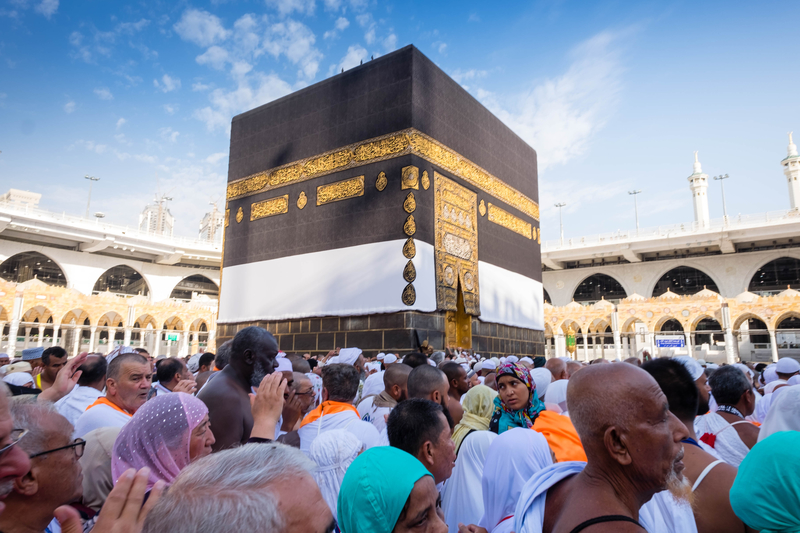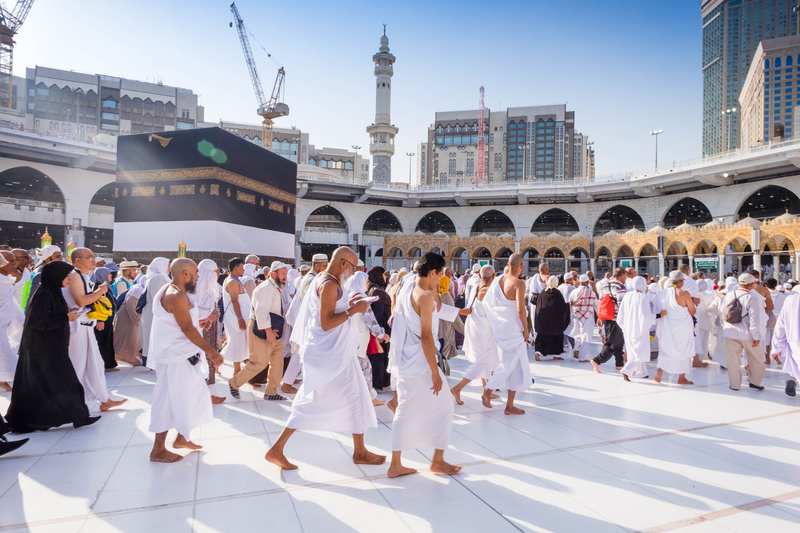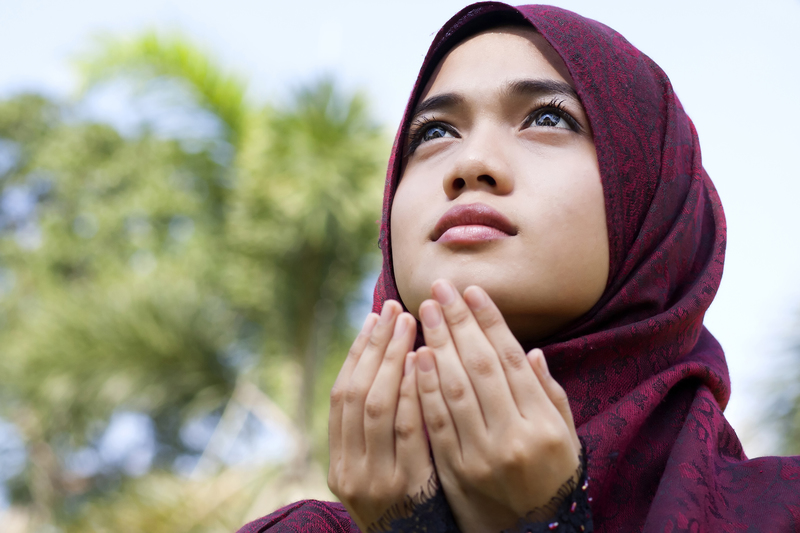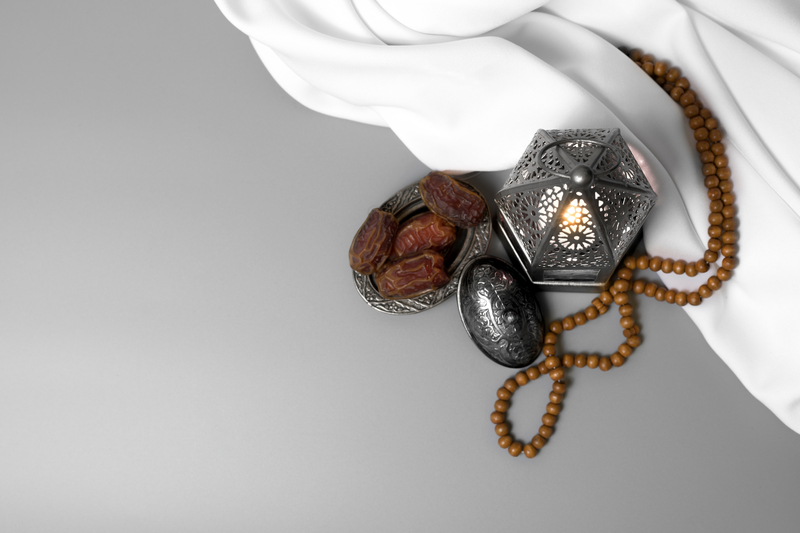The Significance of Hari Raya Aidiladha
Significance of Hari Raya Haji

Muslims around the world celebrate two great festivities (Hari Raya) annually - Aidilfitri and Aidiladha. While Aidilfitri is celebrated more commonly and openly in Singapore i.e. by visiting family members and friends in colourful traditional outfits, less can be seen in the celebration of the Aidiladha besides the annual sacrifice of animals or the Qurban.
So, what is so significant about the upcoming Aidiladha?
Why we celebrate Hari Raya Aidiladha

Muslims observe the Five Pillars of Islam, which are ordained by Allah, to the best of their ability. Among the most challenging forms of worship among the 5 pillars of Islam are the Saum (fasting during the whole month of Ramadhan) and the Hajj (Pilgrimage to Mecca).
بُنِيَ الْإِسْلَامُ عَلَى خَمْسٍ عَلَى أَنْ يُعْبَدَ اللَّهُ وَيُكْفَرَ بِمَا دُونَهُ وَإِقَامِ الصَّلَاةِ وَإِيتَاءِ الزَّكَاةِ وَحَجِّ الْبَيْتِ وَصَوْمِ رَمَضَانَ
"Islam is built upon five: to worship Allah and to disbelieve in what is worshipped besides him, to establish prayer, to give charity, to perform Hajj pilgrimage to the house, and to fast the month of Ramadan”
(Sahih Al-Bukhari)
For Aidiladha, in particular, it is a celebration that marks the completion of all the Pillars of Islam by fulfilling the fifth pillar, the Hajj. The Hajj pilgrimage is only obligatory once in a lifetime, for those who are physically, physiologically and financially abled. Muslims around the world, who are chosen to be the guests of The Most Merciful, answer the calling to perform the pilgrimage in the holy city of Makkah.
Read: Hajj: The Meaning of Pilgrimage
Despite coming from diverse backgrounds, cultures and statuses, they congregate at the same place with one objective - to submit completely to Allah. This is the time for Muslims to wholly express servitude to the Almighty by performing their Hajj.
This ritual originated from the sacrifices of Prophet Ibrahim a.s, his wife Hajar and Prophet Ismail a.s. For example, when Hajar was in a barren desert, alone with her infant, she did not lose hope. She believed that Allah was with her. And indeed, Allah miraculously provided them with zam zam water. Zam zam water still flows today, and pilgrims do not miss the opportunity to drink it.
Read: Hajar and the Significance of Her Sacrifice and Perseverance

All the acts of Hajj require significant physical and financial commitment. As Muslims go through the pilgrimage, it is not just about the rituals. We reflect deeply on the incredible strength and fortitude of Prophet Ibrahim and his family. We renew our intentions and remind ourselves of our ultimate purpose - to live lives that are completely centred on Allah s.w.t.
Recognising the sacrifices that we do for the sake of Allah, Allah the Most Giving and Most Merciful grants us the joyous celebration of 'eid or Hari Raya. This festive celebration is also a means to express our gratitude for the countless blessings given.
Aidiladha is the last day of the 10 best days of Zulhijjah

Allah says in Surah At-Tawbah, verse 36:
إِنَّ عِدَّةَ ٱلشُّهُورِ عِندَ ٱللَّهِ ٱثْنَا عَشَرَ شَهْرًا فِى كِتَـٰبِ ٱللَّهِ يَوْمَ خَلَقَ ٱلسَّمَـٰوَٰتِ وَٱلْأَرْضَ مِنْهَآ أَرْبَعَةٌ حُرُمٌ
“The number of months in the sight of Allah is twelve (in a year) - so ordained by Him the day He created the heavens and the earth; of them four are sacred (the 1st, the 7th, the 11th and the 12th months i.e. Zulhijjah).”
(Surah At-Tawbah, 9:36)
Even in the pre-Islamic period when fightings were normalised, it was forbidden to continue fighting in these months out of respect for its sacredness. Allah s.w.t has made the month of Zulhijjah as one of the sacred months of Islam.
Read: 4 Sacred Months in Islam
In Zulhijjah, Allah rewards all good deeds by multi-fold, especially in the first ten days. This can be seen in a hadith:
ما العَمَلُ في أيَّامٍ أفْضَلَ منها في هذه
“No good deeds done on other days are superior to those done on these (first ten days of Zulhijjah).”
(Sahih Al-Bukhari)
For those of us who can fast throughout the first 9 days of Zulhijjah, let us fast as there are no specific limits to the rewards of fasting except by Allah’s Grace. For those whose conditions do not permit them to fast for 9 days, try not to miss the fasting of Arafah (i.e. fasting on the 9th of Zulhijjah or the eve of Aidiladha).
Read: 3 Good Deeds With Unlimited Rewards
This fast is especially for those of us who are not performing the Hajj this year. Our Prophet Muhammad s.a.w, as recorded by Imam Muslim, mentioned in a hadith:
سُئِلَ عَنْ صَوْمِ يَوْمِ عَرَفَةَ فَقَالَ يُكَفِّرُ السَّنَةَ الْمَاضِيَةَ وَالْبَاقِيَةَ وَسُئِلَ عَنْ صَوْمِ يَوْمِ عَاشُورَاءَ فَقَالَ يُكَفِّرُ السَّنَةَ الْمَاضِيَةَ
“The Prophet, peace and blessings be upon him, was asked about fasting the day of Arafah and he said, “It will expiate the sins of the previous and upcoming years.” Then, the Prophet was asked about fasting the day of Ashura and he said, “It will expiate the sins of the past year.”
(Sahih Muslim)
On the tenth and final day of the best ten days, Allah specifically designated Aidiladha to be a day of celebration and feast. Celebrations are even extended up to four days (10th – 13th Zulhijjah) instead of a supposed single-day celebration.
To many Muslims around the world, it is the bigger ‘Eid’ or celebration compared to Aidilfitri. Fasting during these four days is prohibited. Hence, understanding the significance of the sacred month of Zulhijjah and the reason behind the celebration will help us realise how festive and meaningful Hari Raya Aidiladha is.
Celebrating the value of sacrifice

In the spirit of the festive occasion of Aidiladha, Muslims are encouraged to say the Takbir after every prayer beginning from the Subuh prayer of the 9th Zulhijjah until the Asar prayer of the 13th Zulhijjah, to glorify and praise Allah for this significant occasion. On the morning of Hari Raya Haji, Muslims gather at mosques to pray in congregation.
After performing the prayer, it is in the tradition for Muslims to greet one another and further brighten the joyous occasion. They are also encouraged to take different routes in their journey to and from the mosque so that they will meet and chance upon more people to share the joyful atmosphere through greetings and short exchanges. Muslims also show their gratitude to Allah by strengthening communal bonds with the community at large.
It is encouraged for Muslims to perform the Qurban, a religious rite that originated from the tradition of Prophet Ibrahim a.s. Prophet Ibrahim a.s. loved Prophet Ismail a.s. deeply. Muslims believe that Allah commanded Prophet Ibrahim a.s. to sacrifice his son to symbolically show that one needs to sacrifice whatever is dear to them for the sake of Allah.
Read: The Value of Sacrifice in Islam
Facing a dilemma, he consulted his son about the commandment. Prophet Ismail a.s. immediately told him to do what he was asked. Both Prophet Ibrahim a.s. and Prophet Ismail a.s. believed in the divine wisdom of Allah, the Most Loving and Most Benevolent. Eventually, by His Mercy, Allah did not allow Prophet Ismail a.s. to be sacrificed.
Acknowledging that Prophet Ibrahim a.s. was willing to sacrifice what is dear to him, an animal was sacrificed instead.
This act of sacrifice continued to be a tradition where Allah s.w.t. has given everyone the benefit to be a part of this joyous occasion, from the one who partakes in the Qurban to the one who receives and consumes the meat. Part of expressing gratitude to Allah is through giving. It is a manifestation of love that fills the air as we celebrate this Day of Gratitude.
Prophet Ibrahim a.s. and his family showed us the true meaning of sacrifice for the sake of Allah. In these blessed days, let us ask ourselves this question - what are we willing to give up today to re-centre our lives completely on Allah s.w.t?
We pray that Allah grants us guidance and steadfastness in observing all his commands and may He include us among His obedient and righteous servants. Ameen

